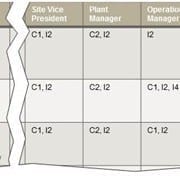The Role of Pre-Employment Assessments in Hiring the Right Candidate
As businesses navigate the complex talent acquisition landscape, the emphasis on finding the right candidate for the proper role has never been more acute. With the cost of a bad hire weighing heavily on organizational resources, pre-employment assessments have become an indispensable part of the recruitment arsenal in the UK. These evaluations enable employers to go beyond the resume, providing a deeper understanding of an individual’s capabilities, work style, and cultural fit.
Understanding Pre-Employment Assessments
Pre-employment assessments comprise various tests and tools to evaluate a candidate’s suitability for a job. These include cognitive ability tests, personality questionnaires, skill assessments, and situational judgment tests. When integrated into the hiring process, they offer data-driven insights that can predict job performance and employee retention more accurately than traditional selection methods alone.
Additionally, pre-employment checks in the UK help employers identify candidates with the competencies and traits necessary for success in a particular role. By standardizing the evaluation process, these assessments enable fair and unbiased candidate comparisons, promoting diversity and inclusion in hiring practices. Moreover, they provide valuable information to candidates about the job requirements and company culture, helping them make informed decisions about their career paths.
Benefits of Pre-Employment Assessments
The use of pre-employment assessments brings numerous benefits to the hiring process. It levels the playing field by giving all candidates the same opportunities to demonstrate their abilities. There’s also an increase in efficiency by quickly identifying the most promising applicants, thereby reducing the time and cost of interviewing unsuitable candidates. Perhaps most importantly, these assessments predict on-the-job success, contributing to better hiring decisions that support an organization’s long-term objectives.
Furthermore, pre-employment assessments help mitigate hiring biases by focusing solely on candidates’ skills, abilities, and fit for the role rather than subjective factors. This promotes diversity and inclusivity within the workforce, enriching the organizational culture and perspectives. Additionally, by providing objective data on candidates’ potential job performance, these assessments assist employers in making more informed decisions, reducing turnover, and increasing employee retention rates.
Types of Pre-Employment Assessments
In talent acquisition, myriad tests are available, each targeting different attributes or skills. Cognitive tests assess logical, verbal, and numerical reasoning and critical skills for problem-solving and decision-making in a business environment. Personality tests can shed light on character traits and cultural compatibility, while skills assessments verify technical or industry-specific competencies vital for job performance. In roles where temperament is crucial, emotional intelligence assessments provide insights into candidates’ ability to manage their emotions and interpersonal relationships effectively.
Moreover, situational judgment tests simulate real-world scenarios to evaluate candidates’ judgment and decision-making skills, offering employers a glimpse into how candidates might handle various workplace situations. Behavioral assessments delve into past behaviors and experiences to predict future performance and compatibility with organizational values. Finally, integrity tests aim to assess a candidate’s trustworthiness and ethical standards, which are crucial for roles involving sensitive information or high levels of responsibility. These diverse assessments comprehensively understand a candidate’s suitability for a given role.
Aligning Assessments With Job Requirements
For pre-employment screening to be effective, the assessments must be meticulously aligned with the job requirements. This involves identifying the key competencies and skills necessary for success in the role and selecting assessments that accurately measure those areas. Defining job-specific criteria streamlines the hiring process and ensures a fair and objective selection method that is more likely to identify the best-fit candidates.
Legal and Ethical Considerations
While pre-employment assessments can be powerful tools, it’s vital to ensure they’re used within the legal and ethical frameworks governing employment practices. This means ensuring tests are validated and non-discriminatory, providing reasonable adjustments for candidates with disabilities, and complying with data protection laws like the General Data Protection Regulation (GDPR) in handling personal information collected through these tests.
Integrating Assessments Into the Hiring Process
Integrating pre-employment assessments into the hiring process should be seamless and candidate-friendly. Structuring the process in a way that explains the purpose and relevance of the tests to applicants can help ease anxieties and yield more authentic responses. Additionally, the timing of assessments is crucial; they should be positioned within the recruitment funnel to enhance decision-making while maintaining engagement from top prospects.
Interpreting Assessment Results
The interpretation of assessment results requires a nuanced approach. It’s essential to consider scores within the context of the job and the company culture. Furthermore, assessments should be one component of a multi-faceted hiring approach, including interviews, reference checks, and other relevant evaluation methods. An overreliance on test outcomes can lead to missed opportunities to identify well-rounded candidates who may excel in areas beyond the scope of the assessments.
The Role of Technology in Pre-Employment Assessments
Technological advancements have revolutionized pre-employment assessments, making them more accessible and efficient. Online testing platforms enable the remote administration of tests, broadening the talent pool and facilitating a quicker turnaround in the evaluation process. Moreover, AI-powered analytics can provide deeper insights into candidate data, helping to identify patterns and predictors of job success that may not be evident through human analysis alone.
Continuous Improvement and Feedback
Pre-employment assessments are not static; they must evolve as jobs and industry standards develop. Regular test efficacy and relevance review, as is soliciting feedback from candidates and new hires about their assessment experience, is essential. This feedback loop can help refine the process, improving both the candidate experience and the quality of hiring decisions.
Conclusion: Pre-Employment Assessments as Strategic Hiring Tools
Employers keen on deploying strategic hiring tools that serve the dual purposes of efficiency and efficacy find an ally in pre-employment assessments. When utilized judiciously, these tools enrich the recruitment process by offering a transparent, objective, and comprehensive evaluation of a candidate’s potential. In the competitive landscape of UK employment, pre-employment assessments are crucial instruments to attract, evaluate, and secure the highest caliber of talent.












Leave a Reply
Want to join the discussion?Feel free to contribute!